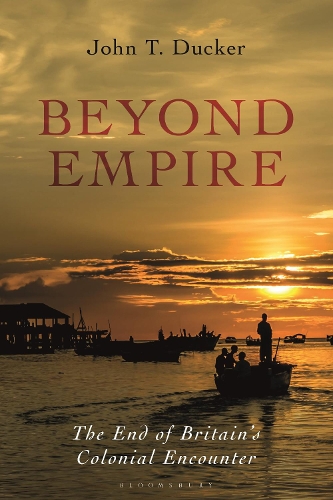
Beyond Empire: The End of Britain's Colonial Encounter
(Hardback)
Publishing Details
Beyond Empire: The End of Britain's Colonial Encounter
By (Author) John T. Ducker
Bloomsbury Publishing PLC
Bloomsbury Academic
20th February 2020
United Kingdom
Classifications
Professional and Scholarly
Non Fiction
European history
African history
325.341096
Physical Properties
Hardback
424
Width 166mm, Height 238mm, Spine 40mm
853g
Description
Beyond Empire looks at three decades of British colonial administration to assess the capacity of the independent governments of Africa to achieve independence. A wealth of archival material and a unique review of British press over those decades brings to life the dynamic and the tension of the process of decolonisation. Addressing a wide range of issues, from education, constitutional change and economic relations, Beyond Empire sheds new light on aspects of colonial history at the country level, with the focus on the African administrations themselves as agents in the decolonisation process.
Reviews
Decolonization in Africa proved a messy process, particularly for the British colonies, which lacked coherence and unraveled too quickly for either London or colonial authorities to manage affairs. Many expressed aspirations for independence and self-government, but practicalities often put the Colonial Office, local administrations, and indigenous authorities in unworkable situations. In Duckers cogent analysis, the brevity of British involvement was the root of the trouble. The 80-odd years of British rule in Africa focused on maintenance and economic development to meet the empire's needs, and Britain did not consider the possibility that those colonies might eventually become independent states until the postwar era. As a result, few resources were directed to the development of an indigenous civil service or an educational infrastructure. In most cases, education in the colonies was relegated to missionary organizations. Thus, institutions of higher education were developed in the imperial twilight; Makerere College in Uganda graduated its first class less than a decade before independence. Although "Africanization" of local governments began occurring in the 1920s, no concerted effort was made until Commonwealth priorities forced the issue. Duckers methodical analysis is a welcome addition to the literature on decolonization. Summing Up: Recommended. Upper-division undergraduates through faculty. * CHOICE *
Author Bio
John Ducker spent seven years as a member of Her Majesty's Overseas Civil Service, the successor to the Colonial Service, from 1960 to 1967, followed by twenty-three years on the staff of the World Bank, for all but seven of those years involved directly or indirectly with Africa.
